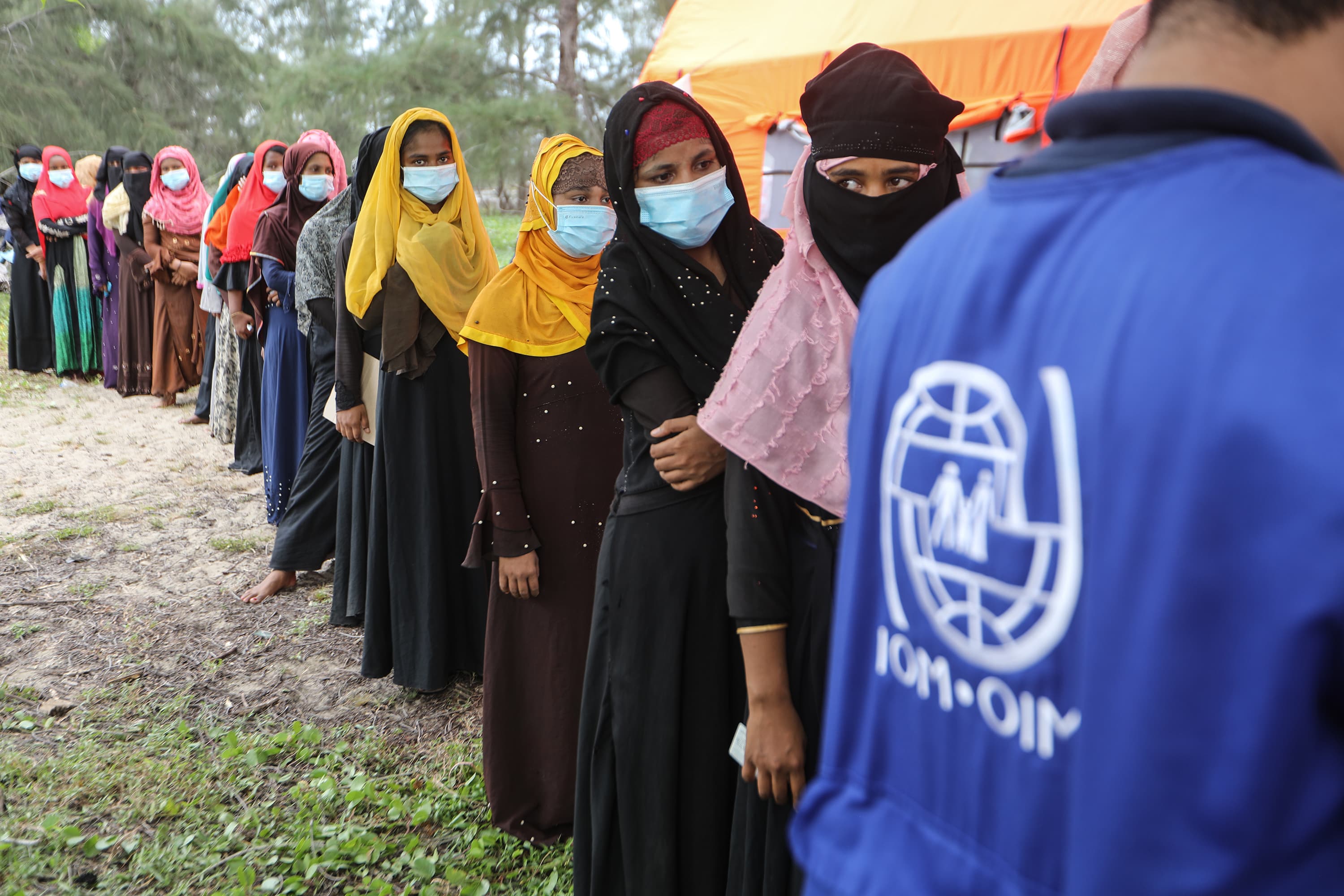Global Covid cases on track to add 100 million by early next year without help to poorer nations, WHO says

ACEH, INDONESIA – JUNE 6: Rohingya refugees queue to get coronavirus vaccine at temporary shelter in Idaman Island, Aceh province, Indonesia on June 6, 2021. A total of 81 Rohingya refugees including children, were found by local residents stranded after the ship damaged. (Photo by Khalis Surry/Anadolu Agency via Getty Images)
Anadolu Agency | Anadolu Agency | Getty Images
The World Health Organization is warning that global Covid cases could pass 300 million by early next year if the pandemic continues in its current direction, calling on world leaders to slow the spread by providing more testing supplies, treatments and vaccines to poorer nations.
The projection came just a week after the WHO reported 200 million Covid cases worldwide and six months after the globe surpassed 100 million cases, WHO Director-General Tedros Adhanom Ghebreyesus said at a briefing Wednesday. With four variants of concern on the WHO’s radar — including the surging, highly transmissible delta variant — Tedros said the total amount of unreported Covid cases makes the real tally “much higher” than what’s reported.
“Whether we reach 300 million and how fast we get there depends on all of us,” Tedros said.
WHO officials expressed an urgent need yesterday for $7.7 billion in funding to help distribute vaccines, oxygen, and medical care in low-income countries. Tedros echoed the push for supplies on Wednesday, requesting properly trained health-care workers and increased treatment options for patients “at all ends of the clinical spectrum, from mild to severe disease.”
“We are all in this together,” he said. “But the world is not acting like it.”
Last week, the WHO announced a moratorium on Covid vaccine booster shots, asking wealthy countries to stop using their extra doses so developing nations could start receiving a majority of the inoculations. Tedros previously issued a target to vaccinate 10% of the world’s population by the end of September and 40% by December.
The WHO has estimated that under 2% of Africa’s population is fully vaccinated, and some nations on the continent have yet to begin administering vaccinations. Comparatively, more than half of the U.S. population is fully vaccinated, according to the Centers for Disease Control and Prevention.




